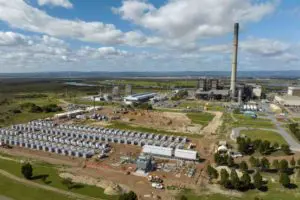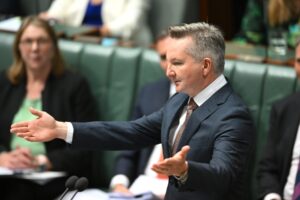The United Nations climate talks are a unique opportunity for governments and non-government organisations to shape and influence global progress on climate action. And being on the ground can provide unparalleled access to decision-makers and those with a voice of influence.
Most international meetings, including the G20 that meets this weekend in Rome, has world leaders meeting behind closed doors, but the international climate talks occur in a comparatively open forum, with delegates representing non-government groups able to mix and interact with official delegations.
And despite the distance and the challenges of securing travel to and from Europe, Australia will have a surprisingly large contingent of official and non-government delegates at the COP26 talks in Glasgow.
Prime minister Scott Morrison will attend at least the first few days of COP26, travelling to Glasgow to speak during the World Leaders’ Summit component, which will see more than 100 heads of state, or heads of government, address the talks.
Federal energy and emissions reduction minister Angus Taylor will also attend COP26. Taylor will be expected to remain in Glasgow for longer than Morrison and is expected to address the ‘high-level segment’ during the second week of the talks – reserved for each country’s relevant climate or environment minister.
Whether Taylor will stay beyond the ‘high-level segment’ is not yet known. Taylor left the prior round of talks, held in Madrid in 2019, before the negotiations had concluded.
Morrison will be travelling with an entourage of an additional ten advisors and a further nine officials from the Department of Prime Minister and Cabinet.
Taylor will travel with two of his staff and one official from the Department of Industry, Science, Energy and Resources. Queensland Liberal-Nationals MP Warren Entsch, who serves as the ‘special envoy’ for the Great Barrier Reef is also planning to attend COP26.
The Department of Foreign Affairs, which generally takes carriage of Australia’s international negotiations, will also send a group of ten officials – taking Australia’s official delegation to both COP26 and the G20 to around 35.
Something new for the Australian Government delegation, it will have a dedicated booth within the COP26 venue, providing a means for direct interaction between government officials and other delegates, likely to serve as a diplomatic outlet to promote trade with Australia and sell its efforts to date on climate change.
Australia’s negotiating team will be led by Jamie Isbister, Ambassador for The Environment, a senior DFAT official who has previously held senior positions in the agency’s humanitarian divisions.
Labor and the Greens will also send representatives to observe the talks, with Mark Dreyfus and Pat Conroy from Labor heading to Glasgow, while Sarah Hanson-Young will attend on behalf of the Greens.
Both Andrew Forrest and Malcolm Turnbull, who have recently combined to lead Fortescue’s push into green hydrogen production, will be in Glasgow, talking up the plans of Fortescue Future Industries, Forrest’s green energy offshoot that is chaired by Turnbull.
Turnbull is also chair of the recently formed Green Hydrogen Organisation, created to promote hydrogen produced only using renewable energy sources, and is a member of the board of the International Hydropower Association.
The Australian Conservation Foundation, the Clean Energy Council, the Climate Council, Greenpeace Australia and ClimateWorks Australia will all have delegates in attendance at COP26, as will several Australian universities, including the Australian National University and the University of Melbourne.
Business groups will also be represented in force.
Australian National University academic, Dr Ian Fry, will also attend the talks as part of the official delegation of the Solomon Islands. Fry is a seasoned climate negotiator, having previously served as the lead negotiator for Tuvalu, and has been an outspoken advocate on behalf of small island states.
Until recently, travel to and from Glasgow was going to be a significant challenge for Australian delegates – as it remains for many potential delegates from less well-resourced countries across the Pacific region.
Covid-related travel restrictions had meant that until recently, it was virtually impossible to secure flights home from the United Kingdom, with delegates competing with Australians living in Europe for a very limited number of seats on flights to Australia.
There have also been reports of wide-scale price gouging on accommodation in Glasgow. With more than 30,000 people expected to travel to Glasgow for the COP26 talks, some accommodation providers have taken advantage of the surge in accommodation demand – often charging thousands of dollars a night for basic lodgings.









